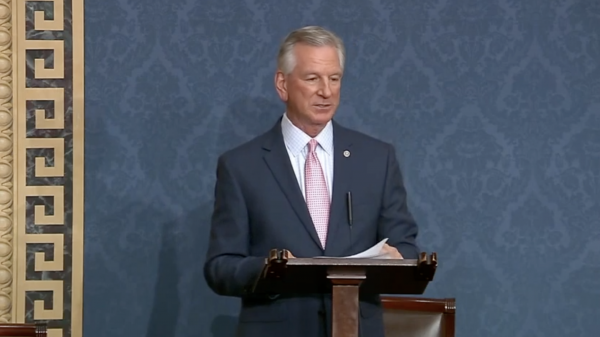On Monday, 18-year-old Cameron Jamal Miikquise Thompson was found shot to death in Tuscaloosa. Thompson was a transgender woman, and her family believes her murder was a hate crime.
A juvenile suspect has since been charged with Thompson’s murder, and although the suspect is being charged as an adult, authorities have yet to publicly identify them. Tuscaloosa Violent Crimes Unit Capt. Jack Kennedy said that the suspect’s motive appears to be related to comments that Thompson posted on social media about the suspect’s sexual orientation.
Earlier this year, Thompson graduated from Job Corps and had been working for UPS. She lived with her mother and her 16-year-old brother. Thompson’s family has organized a GoFundMe campaign to help cover the costs of Thompson’s funeral.
Thompson’s murder is part of a disturbing trend: between 2017 and 2021, the number of trans people who were murdered in the U.S. nearly doubled. As of 2021, transgender Americans are more than four times more likely to be the victims of violent crime than their cisgender neighbors.
Of transgender murder victims, 73 percent are killed with a gun. Data also reveals that a disproportionate number of these victims are Black trans women like Thompson. From 2017 to 2023, 63 percent of gun homicides of gender-expansive individuals were of Black trans women.
Additionally, the murder of transgender people is heavily concentrated in the South, with the region accounting for 44 percent of homicides targeting transgender and gender-expansive people.
In a February interview with The Advocate, Sarah Burd-Sharps, senior director of research at Everytown for Gun Safety, explained why the South is particularly prone to instances of violence against trans people. She emphasized the fact that policy decisions have a direct impact on the safety of marginalized communities.
“It’s a combination of weak legislation on hate crimes and the kind of new [anti-LGBTQ+] legislation that state governments are considering and passing that target transgender people for unequal treatment,” Burd-Sharps said.
In 2022, Alabama passed a law outlawing the use of puberty blockers and hormones to treat transgender people under 19. In January of this year, a federal appeals court granted the state’s request to stay a preliminary injunction that had blocked the enforcement of that law. Now, Alabama doctors who provide gender-affirming care to patients under the age of 19 face a felony punishable by up to 10 years in prison.
Burd-Sharps said that hate crime misdemeanor prohibitors and red flag laws could significantly mitigate violence against transgender individuals living in the South. Restricting access to firearms for individuals convicted of hate crimes and allowing for the temporary removal of guns from individuals who pose a threat to themselves or others could both reduce violence against LGBTQ+ minorities and alleviate Alabama’s gun violence epidemic.























































